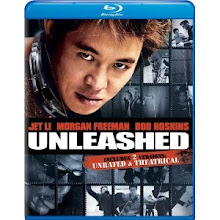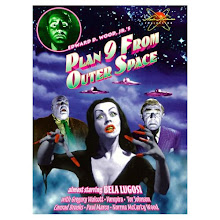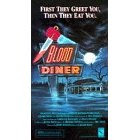Jason - I don't know if my comments are exactly responsive to yours, but here goes:
I've seen "Capote" but I've not seen "In Cold Blood." I've also seen lots and lots of documentaries and TV shows about murder, death, deceit, etc. I don't think I have a problem at all with using the actual scene of the crime in making the film, especially where "In Cold Blood" was meant to be as accurate as possible. To me, it is akin to what "Cold Case Files" and several other TV shows try to do when they make a show about someone getting murdered. Such shows almost always show as much actual footage as they can. The only difference between those TV shows and "In Cold Blood" is WHAT the show is trying to say. In the TV shows, the focus is usually on how the police ultimately solved the crime, and "In Cold Blood" seems more to be about the actual killing and how the crime was completely senseless.
So to me the question is, societally and individually, "Can I empathize with the victims?" That to me is what horrific violence is all about. It's why I was much closer to tears in "Law Abiding Citizen" when his family was killed in front of him than I was in "Rambo." The fact that both stories are completely fictional makes me be able to enjoy the films without really feeling bummed out, and conversely, it's why when I watch "Saving Private Ryan," and "Band of Brothers" why I am always a little sad, and it's why "Schindler's List" was so powerful and depressing.
And I think that's the point. When a film is made about actual tragic events, the point is to feel human. We are supposed to empathize with the hurt, loss, terror, etc. of the people depicted in the film. I believe that using the actual farmhouse is just one more way to let us in the story. It may be unnecessary to tell the story, but it does add to the reality of it, and ipso facto our feelings (as evidenced by the fact that you found it distasteful).
Violence in film is a tricky subject. On the one hand, showing actual violence takes us from saying "Oh that's a shame" to actually forming our own horror/sorrow/whatever to the events. And such feelings are difference between seeing something on the news and forgetting about it the next day, and remembering the story for a long time. But I also understand why most people wouldn't want to have those feelings, and why we actually crave non-sentimental violence in our movies.
That's what I think.
-comments by Andy
Monday, March 15, 2010
Subscribe to:
Post Comments (Atom)






























































4 comments:
Andy,
I should confess here that I actually enjoy violence in film, to some extent — especially when it's fictitious. I suppose since I'm a characteristically passive and gentle person, I am ultimately intrigued by the shocking nature of acts of violence. But just to clarify, not torture or rape or anything akin to the "Saw" movies. And seeing real-life violence in person is extremely upsetting to me.
But with them filming "In Cold Blood" at the actual murder scene, which was the family's home, it just seemed wrong to me, as I mentioned above.
It reminds me a little of a common journalistic controversy that I can illustrate with a quick example:
In 2007 there was a mall shooting at Trolley Square in Salt Lake City. There were a few deaths. On the front page of the Daily Herald, they ran a photograph that showed a woman's body lying face down in the foreground. She was certainly obscured, but no doubt her family members could recognize that it was she, because of their familiarity with her wardrobe. I wondered how I would feel if the newspaper published a photo of my family member's dead body. It would infuriate me.
Somebody saw their mother/sister/wife or aunt lying dead on the front page of the newspaper. One could argue that it is the role of journalism to capture and portray the news as it happens, regardless of its atrociousness. But the written word stating that a woman was shot paints a sufficient picture.
And so it is with films ... When we watched "Bus 174," I was wincing the whole time for the fear of witnessing actual violence. And there is violence in that film, but it's so chaotic and obscured, it's really hard to tell what happens.
I guess, to me, making a film about a real and tragic event is right up to the line, without crossing it. (Indeed, a lot of people feel this way — hence all the discussion whether "World Trade Center" and "United 93" were made "too soon" after 9/11.) But using actual footage or the murder scene itself is crossing the line — but wait: It's not really that they shot the film at the murder scene that bothers me; if it had been a certain street corner somewhere, I wouldn't have cared. But I think the fact that it was their home — what was supposed to be that family's inner sanctum — that became the murder scene, I think that's why I feel it was immoral and irresponsible filmmaking.
That's just my opinion, of course. Thanks for your thoughts, Andy. Feel free to rebut and refute me.
Jason
Jason -
I get what you mean, and yes, there is something sacred about a person's home. So here's a couple of questions - did the family agree to shooting in the house, and did it bother you personally, or did it bother you in concern for the family?
If the family didn't give permission to use the home, maybe there's something to be said for "immorality." But if they gave permission, why does it bother you? Your comments about the Trolley Square shooting were really just about the empathy you were having for the family, right?
And my ultimate point is this - actual or reconstructed violence in movies is no more "violent" than fictional violence - the only reason it has more effect on us is because we feel empathy for the victims and their families.
The telling of a true story becomes more "Impact-ful" the closer the telling comes to depicting the actual event. Privacy concerns are certainly valid, but where privacy is not the issue, real is more effective. At least that's what I think.
-Andy
Andy,
I don't know if the extended family members agreed to having that film shot in that home or not, but the entire Clutter family that lived in the house was slain. So, I suspect that you might say there was no one to object or be offended.
Really, this isn't a hot-button topic for me or anything. I'm not overly passionate about it. So, I guess you could say that I find it distasteful, but after reading your thoughts on it, I see now why some people would not have any problem with it.
But what has fascinated me most about our discussion on this was what you wrote here:
Andy: And my ultimate point is this - actual or reconstructed violence in movies is no more "violent" than fictional violence - the only reason it has more effect on us is because we feel empathy for the victims and their families.
Jason again: I am intrigued by your assertion that reconstructed violence in movies is no more "violent" than fictitious violence. I guess that's true, isn't it? Yeah, fake violence is equal to fake violence, even if the latter was inspired by actual events. OK. I see that.
Nice work, Andy. Never debate with a lawyer.
Jason
Jason - my point about comparing violence was that in this day and age with the special effects available to filmmakers, violence as portrayed on film is not less violent that "actual" violence. "Saving Private Ryan" is a perfect example. I don't think there was anything about that film that could have been more realistic. I've seen lots of crime scene photos, gunshot wounds, stab wounds, etc., and none of them depict any more violence that what I see watching a good violent film.
So what that leaves me with the argument that only reason "actual or reconstructed violence" is more effective (or arguably distasteful) is that it depicts real victims with whom I feel empathy, and it is that ability to have me feel real empathy with real victims that makes such films so effective and evocative.
Post a Comment